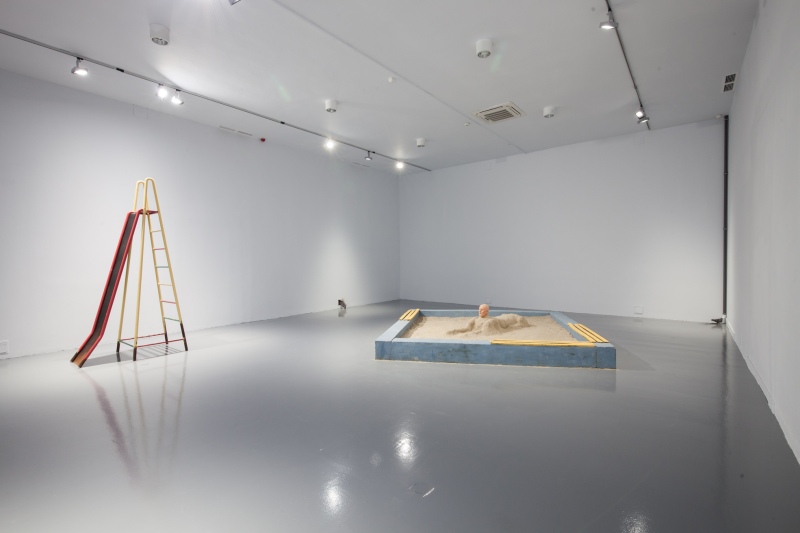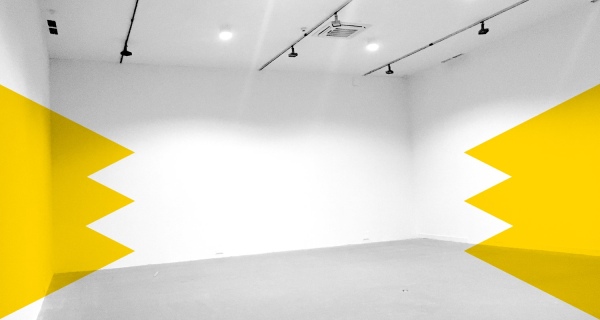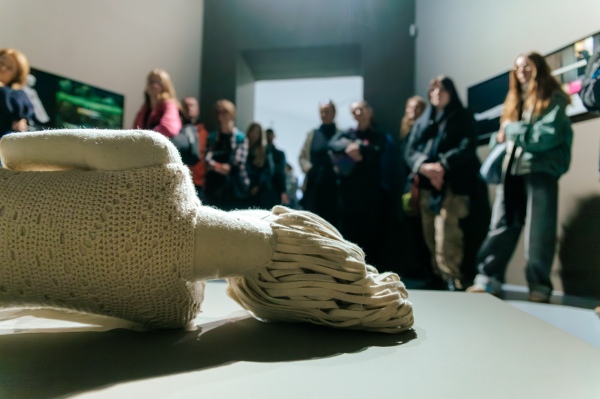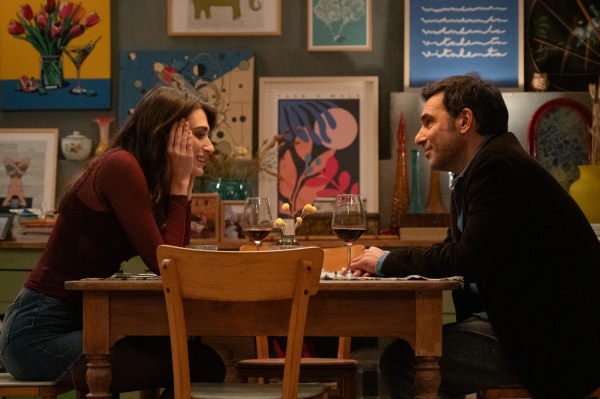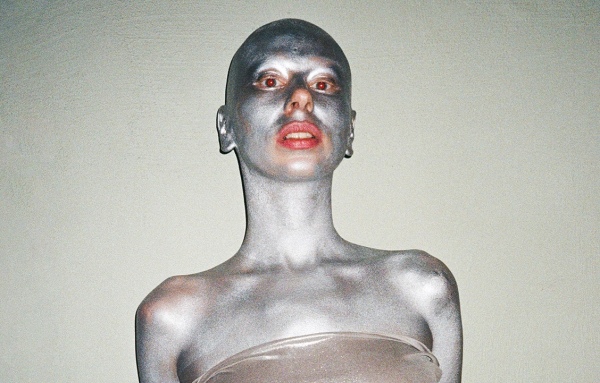Wiktoria Walendzik
please somebody game end me
The time of working on the exhibition was for the artist one of merging various strands into a formal unity. While revealing the omnipresence of nostalgic notions and a fundamental ambiguity of the scene, she activates narratives that go beyond time and place. Previous projects and new artistic productions related to the collection will be programmed with activities throughout the entire creative process.
The above three sentences were generated by an algorithm on the basis of curatorial essays commissioned by the Ujazdowski Castle Centre for Contemporary Art and available online. Gramatically correct and seemingly logical, the passage feels, nonetheless, somehow strange; it is playing it too safe and too clumsily bland, overly encyclopedic and mechanical. The area where we experience this kind of incongruity is known as the “uncanny valley.” It is this field, emerging at the intersection of digital and human conditions, and the boundary between the virtual and the real worlds, where Wiktoria Walendzik's main areas of interest lie.
By posting texts, images, and sounds online, web users create a repository of collective human imagination, which immediately becomes autonomous: converted, copied, analysed and recognised by algorithms, restructured, reformulated, reposted. The catalogue of images generated by the search engine every time we type in a phrase and hit enter is a cross between a dictionary definition tailored to our profile, and the subject’s most-clicked content, gradually turning into an echo of its original. Such mechanised personalisation will almost always return a somewhat discrepant, slightly odd visual interpretation of the searched-for content. These images, as well as social-media posts, oddity websites, meme forums and YouTube videos are Walendzik’s point of departure. The artist selects particular elements, cataloguing them, bundling them into new connection networks, and processing them to obtain her own, even more personalised collection. Images – digital representations of real-world situations or ideas – undergo a process of analogisation, becoming printouts, paper collages, sketches, and eventually physical sculptures, seemingly stripped of their digital nature. At every stage of the inter-media translation, changes and glitches occur, which help to determine the final form.
The exhibition please somebody game end me consists of sculptures that bring to mind the backyard, the street, the playground; public spaces that are subject to a set of rules, and whose function is to provide a friendly environment for user interactions. We can interpret them as a symbolic reference to the open and interactive architecture of an online platform, or to the digitisation of everyday life, penetrating ever more intimate areas of human activity. It is also a landscape of errors, glitches and digital-analogue defects.
The show’s title, a quote from a Roblox user, functions also as an element of a digital/analogue collage. In the preserved picture, the user’s yellow, Lego-like avatar speaks in a public chat, asking to be “end-gamed”, for his gameplay to be finally terminated. What resounds in his plea is a hopeless cry for help in finding an end to an environment designed in an open way, yet unprepared for such a conclusion.
- Text
- Kuba Borkowicz
